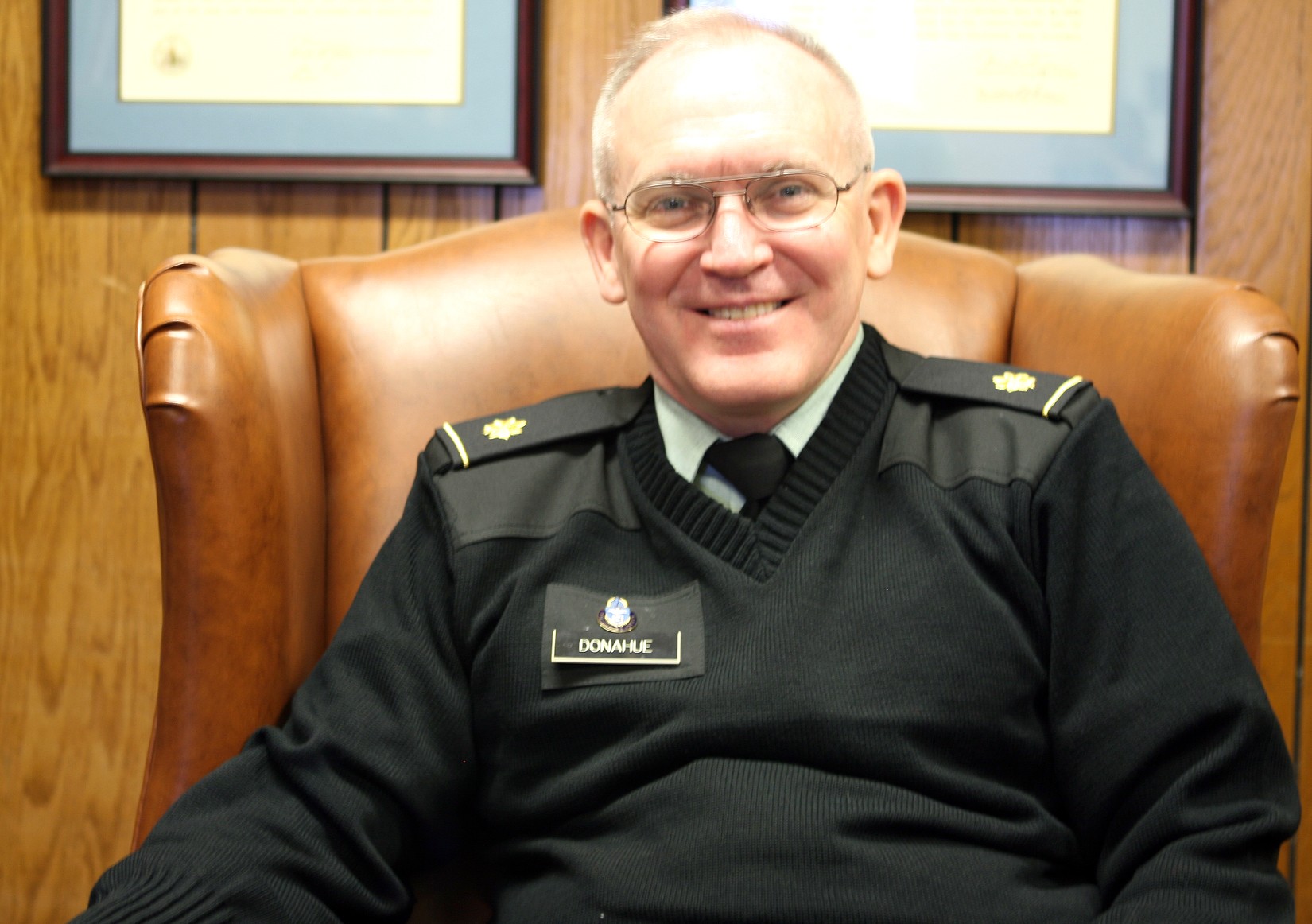
A map marked with colorful pins in Brian Donahue's childhood dining room was about all the contact he had with his brothers at the time.
Donahue was a junior high student and paid close attention to that map of South Vietnam while reading every copy he could of "Leatherneck," a Marine Corps magazine.
His Marine brother was seriously wounded from war there, where two of Donahue's other brothers, both Soldiers, had served, too.
"It had quite an impact on me," Donahue, who grew up with 10 brothers and sisters, said. "I saw the importance of being there for Soldiers, and that's when I decided to become a priest."
After he was ordained a priest, Donahue asked a couple of bishops for permission to join the military before it was granted. Until he could serve as an Army chaplain, he volunteered with a National Guard unit in town. He celebrated Mass with them and heard confessions in his car. He was allowed to join the military soon after that.
But after 20 years in the National Guard, he still isn't finished with his mission of caring for Soldiers.
Donahue, now a monsignor, recently came out of retirement -- as an active-duty chaplain this time -- and came to the U.S. Corps of Cadets in mid-November to be the 4th Regiment's chaplain.
The Army is where he plans to spend the rest of his life.
"My bishop knew, too, I had to go back," Donahue, a major, said recently. "I knew if he released me, I'd be back with the Army for the rest of my life. I'm 53 now, and I plan to be in as long as my health holds out. As long as I'm healthy, I want to work with the Army."
His decision was based on the fact the Army has a quarter of the priests it needs and because he feels God has called him to serve the military community. He had hoped to return to Iraq with the same unit with which he deployed in 2005, but the Army had different plans.
That calling by God is the reason he was never afraid during that deployment and why he hoped to deploy again.
Chaplains do not carry weapons in combat zones. Still, he was never afraid.
"I never thought about it," Donahue, who is skilled with a firearm and enjoys pheasant hunting, said. "I worked with scouts, snipers and Rangers. One of them said to me that he could never get over that -- me walking around with no weapon.
"But I felt a real conviction," Donahue continued. "I was called by God to be there. If I survived, I survived. If I didn't, I didn't. I was called to be there, and that's all I needed to know."
Donahue also found comfort in knowing he could trust the Soldier assigned to protect him.
Chaplains' assistants often are charged with personal security detail of chaplains. But, Donahue had an infantryman protecting him. Even three years after his deployment, Donahue fights back emotion when he speaks about that infantryman's willingness to give his life to protect Donahue.
His calling and devoted infantryman protector kept stress levels low, which helped Donahue concentrate on his mission. He discovered a quirk when things would get tough.
"I'd always look at my watch so I'd know what time it was at home when I died," Donahue said.
Something about that made him calm. And situations that caused him to check his watch let other Soldiers know he understands. He has been in scary situations, too, which has taught him how to find people who are hurting.
He was visiting with a National Guard unit in North Dakota, his home state, recently and noticed a Guardsman's face.
"I thought, 'this guy has been through a lot,'" Donahue said. "I introduced myself and asked about him. He said, 'I'm here because I'm part of the forgotten war.' He was talking about Afghanistan, and he tapped on his leg. All I heard was metal."
The Guardsman was there for medical treatment, and Donahue is thankful he can help Soldiers who need him.
"It's pretty easy to see a Soldier who is still dealing with issues," Donahue said. "They stand out in a crowd. You go up to them, and they pretty much start talking. You can see it in a person right away."
Many cadets do not have the mental fatigue from combat. But, they often seek advice about personal matters. Donahue particularly enjoys meeting cadets' fiancAfAes and hopes to help them understand the responsibilities of being an Army spouse. His message to all -- regardless of combat stress, academic woes, Family struggles or financial problems -- is to always have hope.
"There is always a reason to hope," he said. "It doesn't matter what (the hope) is for -- to see the sunrise, even -- if they have hope, they will survive. There is always something to keep your hope in, and that will keep you going."

Social Sharing